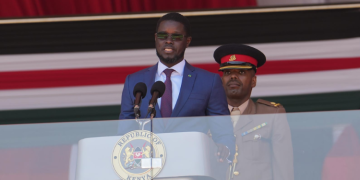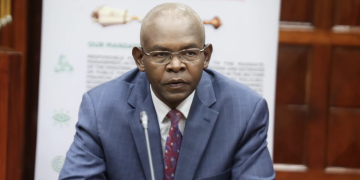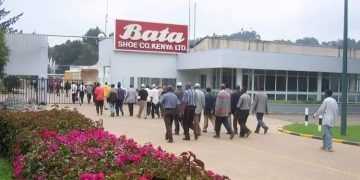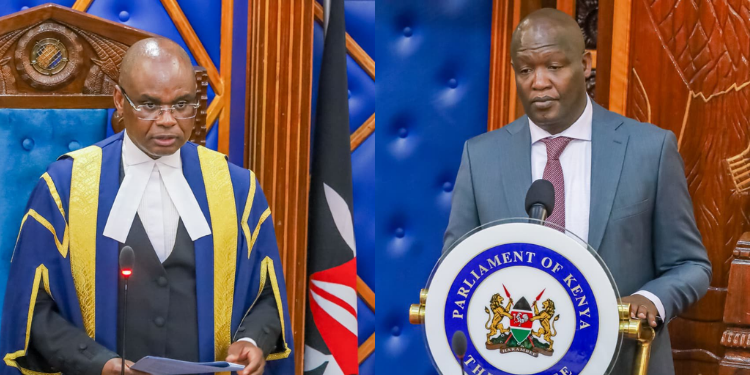Kericho Governor Erick Mutai has survived an Impeachment attempt for the second time in his first term.
Senators voted on Friday, August 29, 2025, after a three-day plenary session, with the majority agreeing that the MCAs did not meet the threshold of 32 votes to impeach the governor.
Twenty-six senators voted that the threshold was not met, 16 voted that it was met, and one senator abstained.
The charges brought against Governor Mutai by the Kericho County Assembly were based on three grounds:
- Gross Violation of the Law – The governor was accused of misappropriating and misallocating county funds, including Ksh 85.7 million in fictitious payments between January and July 2025, and condoning the misuse of over Ksh 351 million under the donor-funded NAVCDP project. Procurement laws were allegedly flouted, and poor-quality supplies were delivered.
- Abuse of Office – Mutai allegedly engaged in illegal appointments, unlawful dismissals, irregular staff transfers, and interference with the County Assembly’s oversight role. Since taking office, he is reported to have dismissed multiple senior officials without due process, exposing the county to costly litigation.
- Gross Misconduct – The governor faced accusations of bullying, incitement, and unlawful actions, including leading a mob to invade private land in Kericho town, which was later converted into a dumpsite in defiance of a court order.
While appearing before the Senate, Governor Mutai dismissed the charges read to him by Clerk of the Senate Jeremiah Nyegenye.
Senate votes on the Impeachment of Governor Erick Mutai
His legal team, led by lawyer Katwa Kigen, argued that the County Assembly’s impeachment vote was not verifiable and failed to meet the constitutional two-thirds majority requirement.
“The voting system does not demonstrate that a lawful process took place. It lacks credibility and falls short of the constitutional threshold. We urge this House to reject the Motion in its entirety,” Kigen submitted.
Governor Mutai’s defense team questioned the credibility of the electronic voting system used during the impeachment.
Also Read: Governor Erick Mutai Impeached Again
MCA Martin Cheruiyot Kiplagat who appeared as a witness on behalf of the Governor told the Senate that 18 members, including himself, had not voted due to mistrust of the system, which was introduced only hours before the session.
According to him, while 47 MCAs were present, only 29 cast their votes—below the required two-thirds threshold.
However, lawyer Elias Mutuma, representing the County Assembly, dismissed Kiplagat’s testimony, describing him as dishonest and inconsistent.
Kericho Governor Survives for the Second Time
He cited Hansard records showing that the MCA had supported the report recommending the governor’s removal, arguing that his change of stance was influenced.
The Head of ICT at the County Assembly, Alfred Korir, also defended the electronic voting system, insisting it was credible, accurate, and transparent. He noted that the entire exercise, including the announcement of results, was streamed live on the Assembly’s official Facebook and YouTube platforms.
“To the best of my knowledge, the voting exercise was transparent, free, and fair,” Korir told the Senate.
Also Read: Senate Gives Way Forward on Kericho Governor Erick Mutai Impeachment
In response, lawyer Elisha Ongoya representing Kericho MCAs urged the Senate to dismiss the objections, maintaining that due process had been followed at the county level.
Discussions on the voting system breach also featured during the Senate plenary session, where witness Okuon Job Oguya, an IT expert appearing on behalf of the Governor, argued that he had conducted a cybersecurity audit of the system’s security level. He explained that the review focused on the protocols and procedures in place and revealed numerous loopholes and breaches within the system.
In his audit report, the ICT expert highlighted the absence of multi-factor authentication and noted weaknesses in the password management policy. He concluded that the voting system was vulnerable to security threats.
However, lawyer Elisha Ongoya countered that the IP addresses and MAC addresses mentioned by the expert were not included in the official report and were being introduced for the first time on the Senate floor.
Philip Irode, Deputy Director of Information Systems and Security at the ICT Authority, who was contacted by the Senate to verify whether the number of MCAs who voted for the Governor’s impeachment was verifiable, confirmed that it indeed was.
“Is the number of MCAs who voted for the impeachment of the Governor verifiable? This was based on the logs extracted from the voting module as well as the system events module, and the answer is yes. The number of MCAs who voted for the impeachment of the Governor was verifiable,” he explained.
The Deputy Director further stated that it was impossible for any MCA—or any other person with a link—to vote on the motion on behalf of another MCA.
Kericho Governor Erick Mutai was impeached for the second time after a majority of MCAs voted in favor of his removal.
In total, 33 members of the County Assembly supported the impeachment motion, which had been introduced on August 6, 2025, by Sigowet Ward MCA Kiprotich Rogony.
Earlier, the Governor had survived a previous impeachment after the Senate argued the MCA’s failed to meet the constitutional threshold in 2024.
Follow our WhatsApp Channel and X Account for real-time news updates.
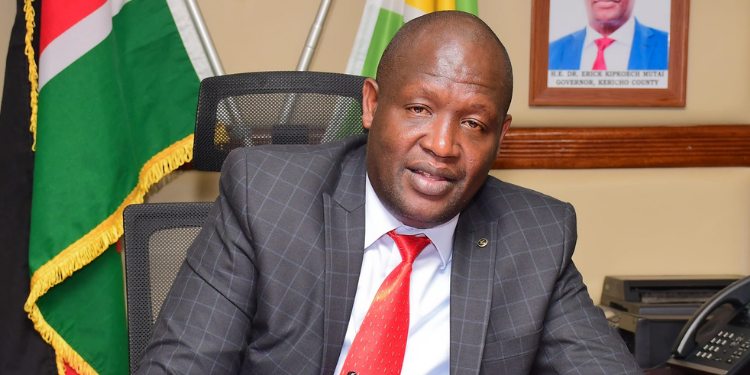




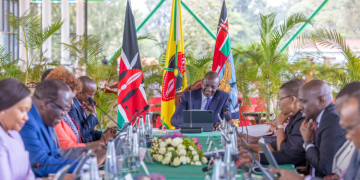
![President Ruto Address During Mashujaa Day And How He Honored Raila [Full Text Speech] President Ruto Address During Mashujaa Day And How He Honored Raila [Full Text Speech]](https://thekenyatimescdn-ese7d3e7ghdnbfa9.z01.azurefd.net/prodimages/uploads/2025/10/ruto-mashujaa-address-360x180.jpg)
